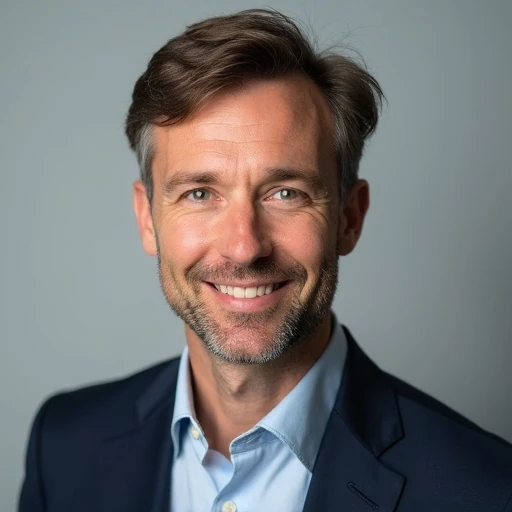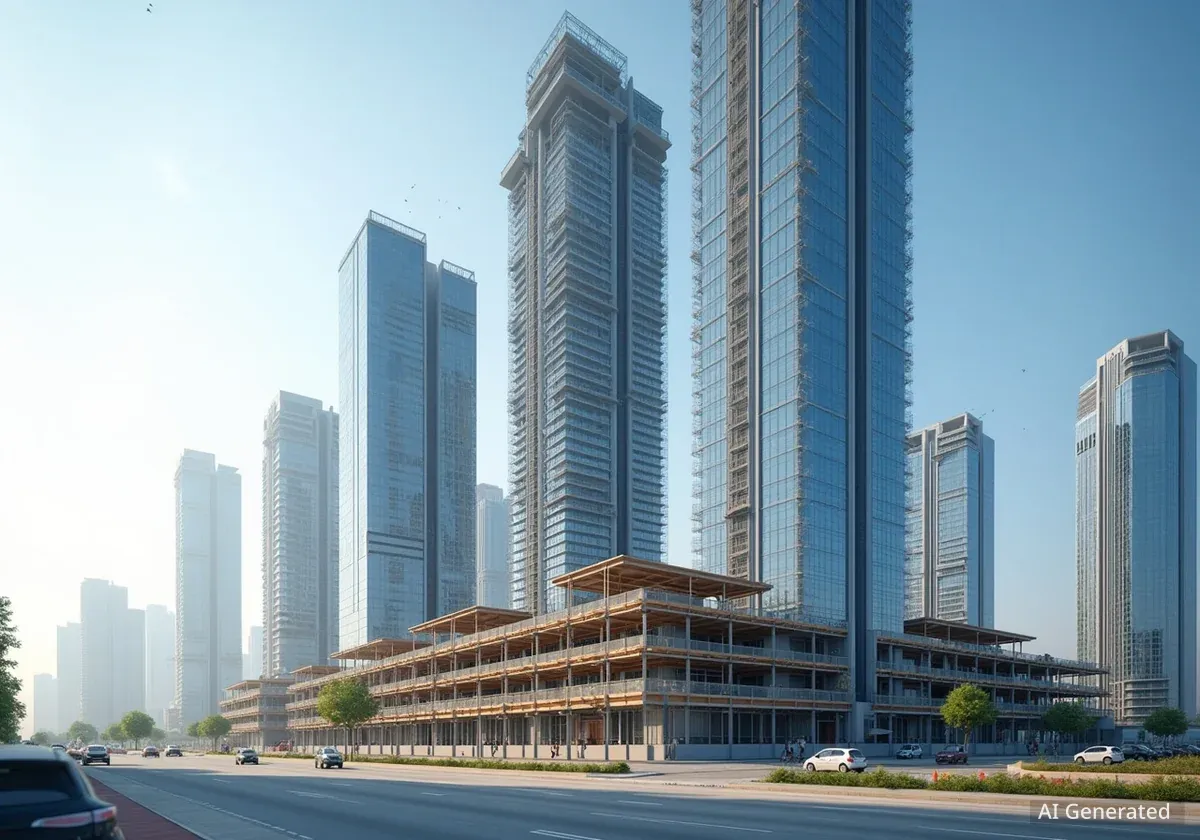Wealth Holding has announced a strategic partnership with Retaj Group to develop a major mixed-use project in Egypt's New Administrative Capital (NAC). The collaboration will focus on the Jeval Business Complex, a development that combines commercial, administrative, and hospitality spaces, signaling growing investor confidence in the region.
This partnership aims to meet the rising demand for integrated real estate projects in one of Egypt's most significant urban development zones. The project aligns with the country's broader economic strategy, known as Egypt's Vision 2030, which seeks to attract foreign investment and modernize national infrastructure.
Key Takeaways
- Wealth Holding and Retaj Group have formed a partnership to develop projects in Egypt's real estate and hospitality sectors.
- The central project is the Jeval Business Complex, a 12-floor mixed-use building in the New Administrative Capital (NAC).
- The complex will feature commercial spaces, administrative offices, and branded hotel apartments.
- The collaboration reflects increased foreign investment in Egypt, supported by the government's Vision 2030 initiative.
- Retaj Group plans a significant expansion in Egypt, aiming to manage 50 hotels by 2030.
A New Venture in Egypt's Capital
The partnership between Wealth Holding and Retaj Group marks a significant move in Egypt's property market. Their primary focus is the development of the Jeval Business Complex, located in the Downtown area of the New Administrative Capital.
This project is designed as a multi-purpose facility. It will provide a blend of commercial retail spaces, corporate administrative offices, and fully serviced hotel apartments. The goal is to create a self-contained environment for business, living, and leisure.
Details of the Jeval Business Complex
The Jeval Business Complex is planned for a plot of land measuring 3,600 square meters. The structure will rise 12 stories, making it a prominent building in the NAC's developing skyline.
The integration of different types of spaces is a key feature. By offering commercial, business, and residential hospitality options in one location, the developers aim to attract a diverse range of tenants and investors. This model is becoming increasingly popular in modern urban centers.
Project at a Glance
- Name: Jeval Business Complex
- Location: Downtown, New Administrative Capital, Egypt
- Total Area: 3,600 square meters
- Height: 12 floors
- Uses: Commercial, administrative, and branded hotel apartments
The New Administrative Capital as an Investment Hub
Egypt's New Administrative Capital is a cornerstone of the nation's long-term development plan. The massive project, located east of Cairo, is intended to be a new hub for government, finance, and business.
The government's commitment to building state-of-the-art infrastructure in the NAC has made it highly attractive to both domestic and international investors. The city is designed to support a growing population and provide a modern, efficient environment for corporations.
Egypt's Vision 2030
The partnership aligns with Egypt's Vision 2030, a national strategy for sustainable development. A major goal of this vision is to transform Egypt into a leading investment destination in the Middle East and North Africa (MENA) region. Efforts over the last decade have included infrastructure upgrades and creating a more business-friendly regulatory environment.
Projects like the Jeval Business Complex are seen as essential to realizing the NAC's potential. They provide the necessary commercial and residential facilities to support the thousands of companies and millions of residents expected to relocate to the new city.
Profiles of the Partner Companies
The collaboration brings together two experienced firms from the real estate and hospitality sectors. Wealth Holding provides development expertise, while Retaj Group contributes its knowledge in hotel and property management.
Wealth Holding's Development Experience
Wealth Holding, led by CEO Eng. Sohair Koriem, has been active in real estate for over 23 years. The company has a portfolio of significant projects in Egypt and internationally.
Notable domestic projects include Garden Hills October, Al Safwa Hospital, the Olympic City on Al Sokhna Road, and the development of New Ismailia City. Abroad, the company was involved with the Rixos Ras Al Khaimah Hotel in the UAE and the Nur-Mubarak Educational University in Kazakhstan.
Eng. Sohair Koriem stated that the collaboration with Retaj Group is a direct response to the growing opportunities in the Egyptian market. She described the Jeval project as more than just a commercial venture, calling it a step toward a new era of mixed-use developments that integrate real estate with hospitality.
Retaj Group's Hospitality Expansion
Retaj Group is a well-known name in the hospitality industry with a strong presence in the MENA region. The company has identified Egypt as a key market for its future growth strategy.
Sheikh Nayef Bin Eid Al Thani, Chairman of Retaj Group, highlighted Egypt's recent infrastructure advancements as a key factor making the country an attractive investment destination. He affirmed the company's long-term commitment to the Egyptian market.
Retaj Group's Egypt Expansion Plan
Retaj Group has an ambitious timeline for its Egyptian operations:
- Manage 26 hotels by the year 2025.
- Increase the portfolio to 50 hotels by the year 2030.
Upcoming projects include Retaj Golden Gates (2025), Retaj Sharm Resort (2026), Retaj Heights New Cairo (2027), and Retaj R Residence (2028).
Economic Impact and Future Outlook
The partnership between Wealth Holding and Retaj Group is expected to have a positive impact on Egypt's economy. By developing high-quality integrated properties, they are contributing to the country's appeal for foreign direct investment (FDI).
The Jeval Business Complex is a model for future urban development in the region. Its design, which combines places to work, shop, and live, addresses the modern demand for convenience and efficiency in urban environments. Such projects are vital for attracting international businesses and skilled professionals.
Furthermore, the development will create jobs during its construction phase and long-term employment opportunities in the commercial, administrative, and hospitality sectors once operational. This contributes directly to local economic growth and supports the goals of Vision 2030.
As Egypt continues on its path of economic diversification and modernization, strategic collaborations like this one will be crucial. They not only build physical infrastructure but also build confidence in Egypt's future as a leading economic power in the Middle East and North Africa.





